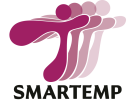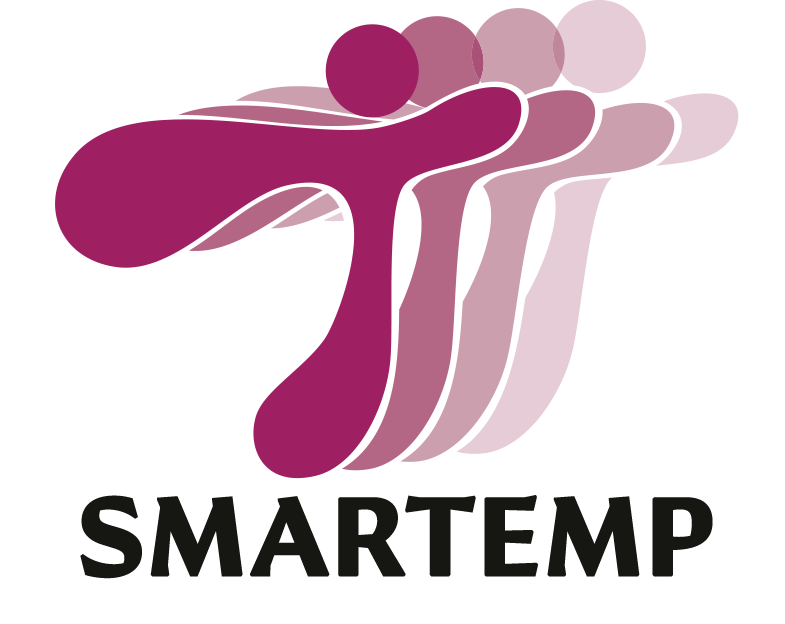You only have a few hours left before the interview, and the nerves are starting to kick in. “What questions or tests will I get? What if I don’t know how to answer them?” These thoughts are probably fueling your biggest fears. And you’re not alone.
The study ForDigitStress: Presentation and evaluation of a new laboratory stressor using a digital job interview scenario (Becker, Heimerl & Andre, 2023) found that, during a simulated digital interview, 45 participants experienced biological stress responses and reported emotions such as surprise and anxiety. Another study, Game-based assessments of cognitive ability in recruitment: Validity, fairness and test-taking experience (Leutner, Codreanu, Brink & Bitsakis, 2023), analyzed over 11,500 completed tests and showed that gamified assessments are becoming increasingly common in evaluating candidates’ cognitive abilities.
If you feel like interview questions or tests take you by surprise, go through this practical guide to learn how to prepare for your next interview and manage your emotions.
Why the “surprise factor” shows up in interviews. How interviews and tests have evolved
You may have noticed that interviews from 4–5 years ago looked very different. Traditional questions (“Where do you see yourself in 5 years?” was still in fashion), and the recruitment process was largely based on experience and motivation. Today, employers use online tests, simulations, reasoning challenges, group exercises, assessment-day formats, or even pre-recorded video interviews.
Why did this shift happen? Here are a few reasons:
- Competition for talent is higher, and companies can no longer rely on “a good CV + good impression” alone.
- Recruitment efficiency matters: tests allow for fast, objective assessment of skills. For example, cognitive aptitude tests are used to estimate how quickly you can learn a new job.
- Some employers want to understand team fit, cultural alignment, adaptability, and how you perform under pressure — which means more unpredictable questions and tests.
If tests or interview discussions catch you off guard, it’s not your fault; the process simply changed. The good news: you can prepare for it.
What types of tests you may encounter and how to handle them
Discover the most common types of assessments and smart ways to approach them.
a) Cognitive or reasoning aptitude tests
These are often the most concrete “surprises”: before the actual discussion, you may be asked to complete an online numerical, verbal, or abstract reasoning test.
What you can do:
- JobTestPrep – cognitive aptitude and personality tests similar to those used by employers, with explanations and solutions.
AssessmentDay – numerical, verbal, and logical reasoning tests, plus interview simulations and practice exercises.
12MinPrep – structured courses and materials for cognitive test preparation, with free and paid options focused on speed and accuracy.
123test – free cognitive ability tests (verbal, numerical, spatial) with immediate feedback.
PsychometricTests – thousands of simulated questions and full tests with performance reports.
- Practice under time pressure: time limits can increase stress and amplify the feeling of surprise.
- Accept that you don’t need to “know everything”: what matters is showing your thinking process, calmness, and clarity under pressure.
b) Situational questions
You may be asked to react to a scenario relevant to your future job. For example:
“You’ve arranged for the CEO or a company leader to appear on TV, but they call you right before the show to say they don’t want to go anymore because the agreed questions were changed and the host is taking a tabloid-style approach. What do you do?”
Such questions may feel surprising, but they serve a purpose: evaluating creativity, adaptability, and your response to the unexpected.
What you can do:
- Don’t panic: breathe, think for a moment, structure your answer. It’s better to give a clear and simple response than a long, confusing one.
- Recall 2–3 real examples from your experience that you can adapt to various questions.
Practice likely interview questions — here you can find a list of possible questions for a temporary job interview.
d) Video / asynchronous interviews / AI-based interviews
Another type of test may require you to record a short video with your answers, or participate in a video interview where you are recorded. Studies show that digital interviews can induce biological stress responses (pmc.ncbi.nlm.nih.gov).
What you can do:
- Before hitting “Start,” check your environment: clean background, good lighting, working audio.
- Be natural: keep a relaxed posture, look into the camera, speak clearly.
Do a test recording: watch it critically — how convincing you are, your gestures, tone of voice.
b) Group interviews or team exercises
You may be asked to join a group activity: together with other candidates, you’ll collaborate or complete a shared task, and then be evaluated.
What you can do:
- Prepare mentally for a different format: think about how you’ll contribute and add value.
- Observe group dynamics: who speaks, how decisions are made, what role you can take.
- Highlight your role: if you spotted an issue and intervened constructively, mention it. Many candidates forget to emphasize their personal impact.
How to prepare for an interview in a structured way
Let’s move to the practical part — how to prepare from A to Z so the tests or interview don’t catch you off guard.
a) Analyze the job description and the company
Before anything else, know what you’re preparing for. Read the job description carefully — requirements, responsibilities, skills. Research the company: values, culture, key projects.
This training gives you two benefits:
- Your answers become more informed and aligned with what the employer needs.
- You reduce surprises: when you understand the role and expectations, you can anticipate tests or specific discussion topics.
b) Practice relevant tests
Once you know the job type, focus on relevant tests: cognitive, reasoning, personality tests, or work simulations. The sources mentioned above can help.
Suggested preparation plan:
- Schedule 2–3 practice sessions before the interview.
- Use a timer similar to the real test.
- Note which questions create stress or blockages and revisit them.
c) Prepare for behavioral questions
Questions like “What would you do in this situation?” are increasingly common and can be unpredictable.
- Pick 3–4 examples from your career: a success, a failure/learning moment, a conflict situation, and one improvisation scenario.
- Use the STAR method (Situation – Task – Action – Result) to structure your answers.
- Be ready to adapt examples to unexpected questions.
d) Run a mock interview
If possible, simulate the interview: a friend or colleague can help by asking you questions (including tricky ones). For online tests, check your internet connection and choose a space without distractions.
Simulation helps with confidence and reduces anxiety — which makes you more prepared for surprises.
On the day of the interview: how to handle unexpected situations
When you receive unexpected tests or questions, staying calm is key:
- Take a deep breath before meeting the recruiter or manager. The worst-case scenario is that you don’t know the answer and don’t get the job. Until then, you have plenty of cards to play — focus on confidence, adaptability, curiosity, and the courage to try.
- Listen carefully to the instructions: if something isn’t clear, it’s perfectly fine to ask for clarification.
- Connect with what you practiced — match the question/test to your experience.
- If it’s a timed test: manage your time. Two clear answers are better than many rushed ones.
- If the question is surprising: ask for a few seconds to define the context, then answer.
What to do after the interview or test
How you handle things after the interview can make a difference.
a) Reflect on the experience
Write down what happened: the test you received, how you felt, what you did well, and what you could have handled differently. This reflection helps if you receive negative feedback or prepare for the next interview.
b) Send a tailored thank-you email
Send the recruiter a thank-you message. Mention something specific: “I appreciated the practical challenge in the reasoning test — it helped me reflect on…” This shows engagement, appreciation, and adaptability.
c) If you don’t receive an offer: use the experience
Don’t let rejection discourage you. Use the experience to prepare better next time. You now have more clarity about the tests/questions you might encounter — and you’re better equipped.
Adopt the mindset that turns unexpected interview situations into opportunities
If you see yourself as a “victim” of unexpected interview questions or tests, stress increases. If you see yourself as a prepared participant navigating unpredictability, the test becomes an opportunity. Try adopting this mindset:
- Curiosity, not fear: Ask yourself, “What can I learn from this interview or test?” instead of “Why is this a trap?”
- Adaptability: Interviews evolve — yesterday’s normal isn’t today’s normal.
- Authenticity: Interviews and tests are not just about what you’ve done, but who you are as a person and collaborator. Be yourself.
- Persistence: Every surprise becomes practice for next time.
If interview tests or questions take you by surprise — that’s completely normal. What matters is what you do before, during, and after that surprise. Strategic preparation, the right mindset, and adaptability can turn an unexpected situation into a chance to shine. Use the steps above — and go into your interview with confidence: not just to survive the surprise, but to use it to your advantage.
It’s completely normal to feel uncertain before an interview or to have questions. In these moments, support from a specialized recruitment and career counseling team can make all the difference.
Smartemp has 13 years of experience in the Romanian human resources market, specializing in both recruitment and employee transition support. Smartemp can help you:
- Identify real job opportunities aligned with your profile and salary expectations;
- Craft a competitive CV tailored to current employer requirements;
- Practice job interviews to boost confidence and improve your chances of success;
- Explore new fields where your skills may be transferable if you’re considering a career change.
Smartemp’s recruitment expertise comes from ongoing collaboration with companies across diverse industries – IT, call centers, telecom, healthcare, and education. This network can give you direct access to job opportunities not always posted on public recruitment platforms. acces direct la joburi care nu apar intotdeauna pe platformele publice de recrutare.
Smartemp is a reliable career partner, no matter what stage you’re in.
Write to us at: recrutare@smartemp.ro
Q&A – about unexpected interview situations and emotions
Why do emotions and fears appear before an interview?
You’re facing the unknown — you don’t know what questions or tests you’ll get, and you feel the pressure to make a good impression. It’s a normal anticipatory stress response, not a sign of weakness.
What can I do if I feel overwhelmed before an interview?
Preparation and mindful breathing are the best remedies. Remind yourself, “My emotions don’t control me — I can manage them.” Visualize a positive outcome and remember that recruiters know emotions are natural.
How can I reduce the fear of unexpected questions?
Through exposure and practice. Train with diverse, even unusual questions, and get used to the idea that you don’t need the perfect answer. What matters is clear thinking and explaining how you approach a new situation.
What does good interview preparation mean?
IUnderstanding the role, practicing relevant tests, reviewing examples from your experience, and simulating the interview. The goal is to stay calm even when surprises appear.
How can I motivate myself on interview day?
Remember that an interview is not an exam — it’s a conversation between two people exploring whether they can work together. Adopt the mindset: “I’m also evaluating whether this role fits me.”
What if I feel one of my answers wasn’t good?
Don’t freeze. Continue calmly — one weak answer does not define the entire interview. You can even clarify later: “I’d like to return to that earlier question — I’ve thought of a more relevant example.”
What mindset helps me manage interviews more easily?
A mix of curiosity, authenticity, and adaptability. If you see the interview as a learning experience, not a judgment, pressure decreases and performance increases.
How can I turn stress into an ally?
Accept it as a natural part of the process. Moderate stress helps you stay focused and present. Instead of fighting it, use it as energy to express your ideas with enthusiasm.
What matters most in an interview, beyond the exact answers?
Attitude. Recruiters value calmness, openness, how you think, and how you adapt. In the end, it’s not just what you say, but how you present yourself as a person and potential colleague.
Sources:
- Becker, L.; Heimerl, A.; Andre, E. (2023). ForDigitStress: presentation and evaluation of a new laboratory stressor using a digital job interview-scenario. Frontiers in Psychology, 14:1182959. (frontiersin.org)
- Leutner, F.; Codreanu, S-C.; Brink, S.; Bitsakis, T. (2023). Game based assessments of cognitive ability in recruitment: Validity, fairness and test-taking experience. Front. Psychol., 13:942662. (pmc.ncbi.nlm.nih.gov)
- Additional general sources on cognitive ability tests: Kato, A. E. et al. (2025). Cognitive Ability Testing in the Workplace: Modern Approaches and Methods. J. Intell. 13(6):68. (mdpi.com)
Read also:
Top 7 Job Interview Mistakes and How to Avoid Them
Do you regret not being able to say everything during the interview? How do you manage this feeling?



